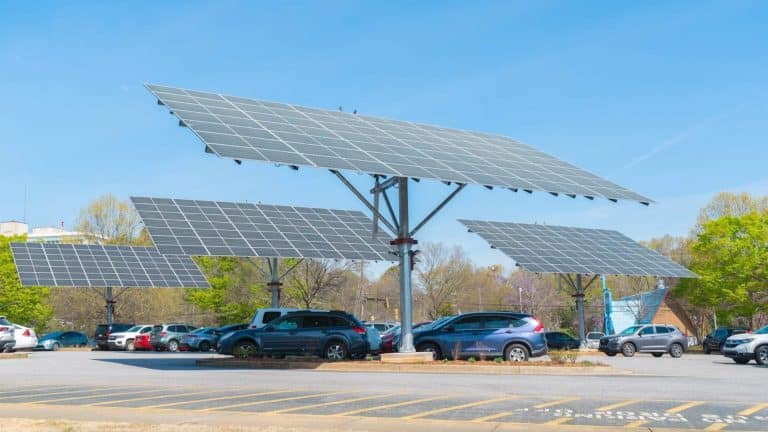CHAPEL HILL, N.C.— Regulated monopoly Duke Energy’s proposed Carbon Plan violates state and federal laws, includes flawed analyses that favor delaying climate action, and underinvests in no-regrets, carbon-free renewable energy resources, according to a brief and proposed order filed with the North Carolina Utilities Commission by the Southern Environmental Law Center on behalf of clean energy advocates and jointly with the North Carolina Sustainable Energy Association. The Southern Environmental Law Center represents the Natural Resources Defense Council, the Sierra Club, and the Southern Alliance for Clean Energy in the Carbon Plan proceeding.
SELC Senior Attorney David Neal said, “Duke’s proposal displays a lack of innovation from the utility, which has the power to comply with state and federal climate laws while maintaining reliable and affordable service. We’re urging the utilities commission to deny Duke’s unlawful plan, which would cement North Carolinians’ reliance on polluting fossil fuels rather than embrace decisive action toward the clean energy future required by state law.”
A 2021 bipartisan state law requires North Carolina’s power sector to reduce heat-trapping carbon pollution at least 70% below 2005 levels by 2030. In its proposed plan, Duke would drag its feet on investment in available, reliable clean energy, unlawfully extending the timeline for carbon reduction to 2035 or even later.
In addition, the plan would violate a federal law that significantly limits carbon pollution from new methane gas plants after 2032 and requires a timely retirement schedule for coal-fired plants. Duke is part of a coalition of power companies that filed a lawsuit asking the U.S Court of Appeals for the D.C. Circuit to strike down the rule.
Luis Martinez, southeast regional director with the Natural Resources Defense Council, said, “Duke is trying to have its cake and eat it too, enjoying the benefits of multiyear rates while simply refusing to comply with the climate emission reductions that were part of the bargain in House Bill 951. Doubling down on fossil gas generation, even as the new federal climate regulations are in place, would be a failure to protect their customers’ best interests. We encourage the utilities commission to prioritize the utility customers by denying Duke’s proposal.”
The advocates noted that in several instances, Duke’s proposal puts a thumb on the scale in favor of delaying climate action. For example, in its analysis of a plan that would meet the 2030 state climate deadline on time, the utility artificially inflated the cost of all energy resources. Throughout the Carbon Plan proceeding, customer and clean energy advocates also raised concerns that Duke had overestimated projected energy demand in North Carolina. That forecasted demand serves as a major justification for the utility’s massive methane gas buildout. At the same time, Duke’s proposal throttles the amount of new clean energy that can be added each year.
Mikaela Curry, campaign manager with the Sierra Club, said, “In addition to disregarding federal law, Duke’s plan proposes to double down on dirty methane gas. Methane gas power plants are subject to volatile and expensive fluctuations in price and pose serious risks to our communities and the climate – contributing to warming at a faster rate than carbon dioxide. We can meet North Carolina’s increased energy needs through speeding up the procurement of clean renewable energy resources – resources which won’t demand that communities pay the cost for climate delay.”
Shelley Robbins, senior decarbonization manager with the Southern Alliance for Clean Energy, said, “North Carolina’s bipartisan climate law is intended to make the state a leader when it comes to climate and clean energy jobs. Duke’s proposal ignores state goals and slow-walks adoption of clean energy technologies that would increase our resilience to climate change. Instead, Duke proposes doubling down on fossil fuels that drive climate change. We lose twice. We encourage the utilities commission to put North Carolinians first by approving a plan that ensures a timely energy transition through the accelerated development of resources like solar, wind, battery storage, and energy efficiency.”

